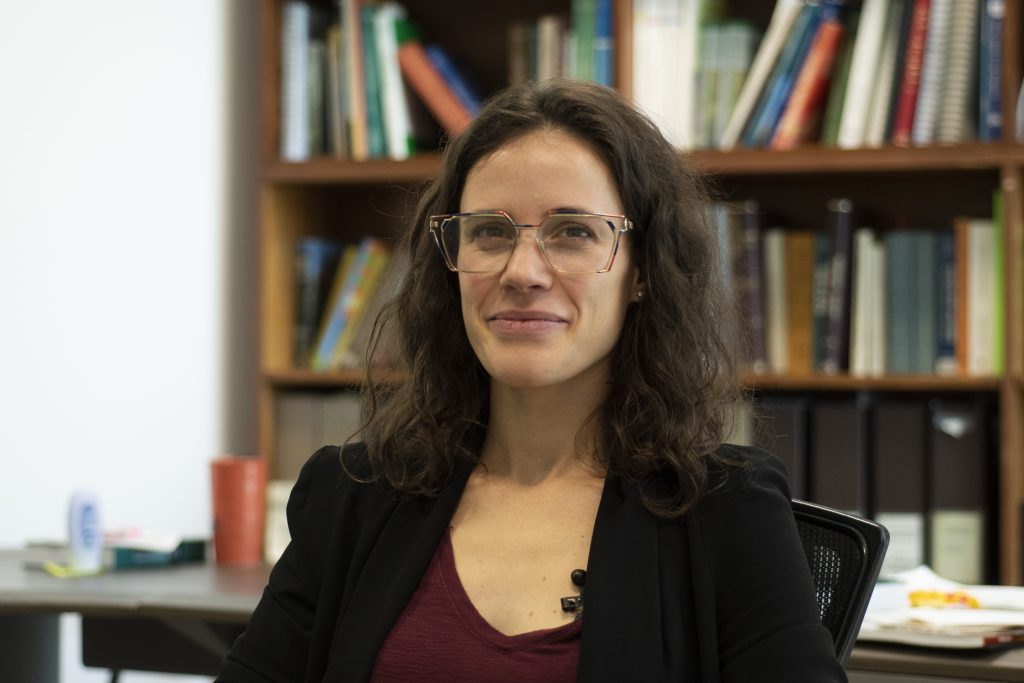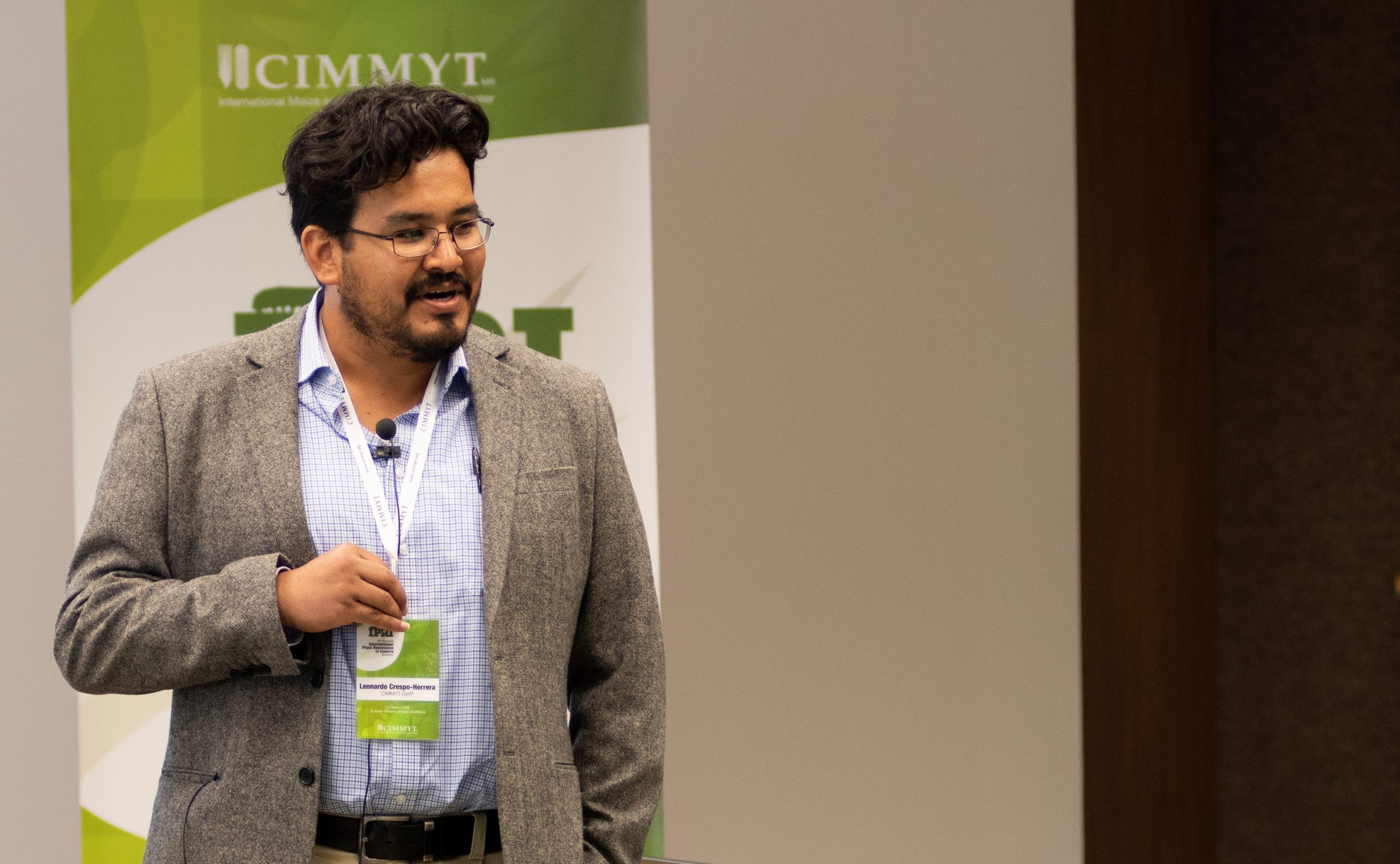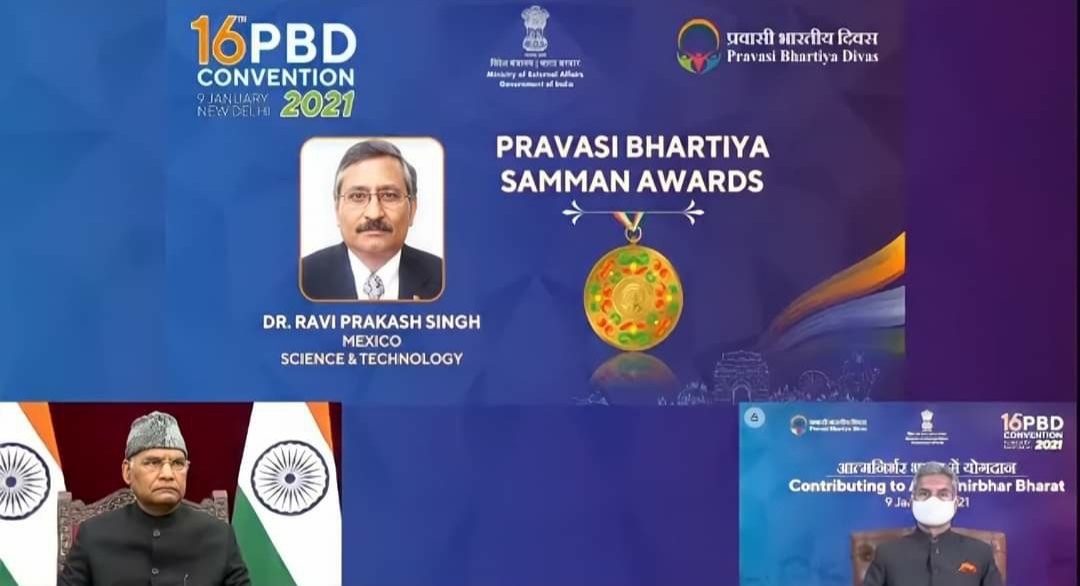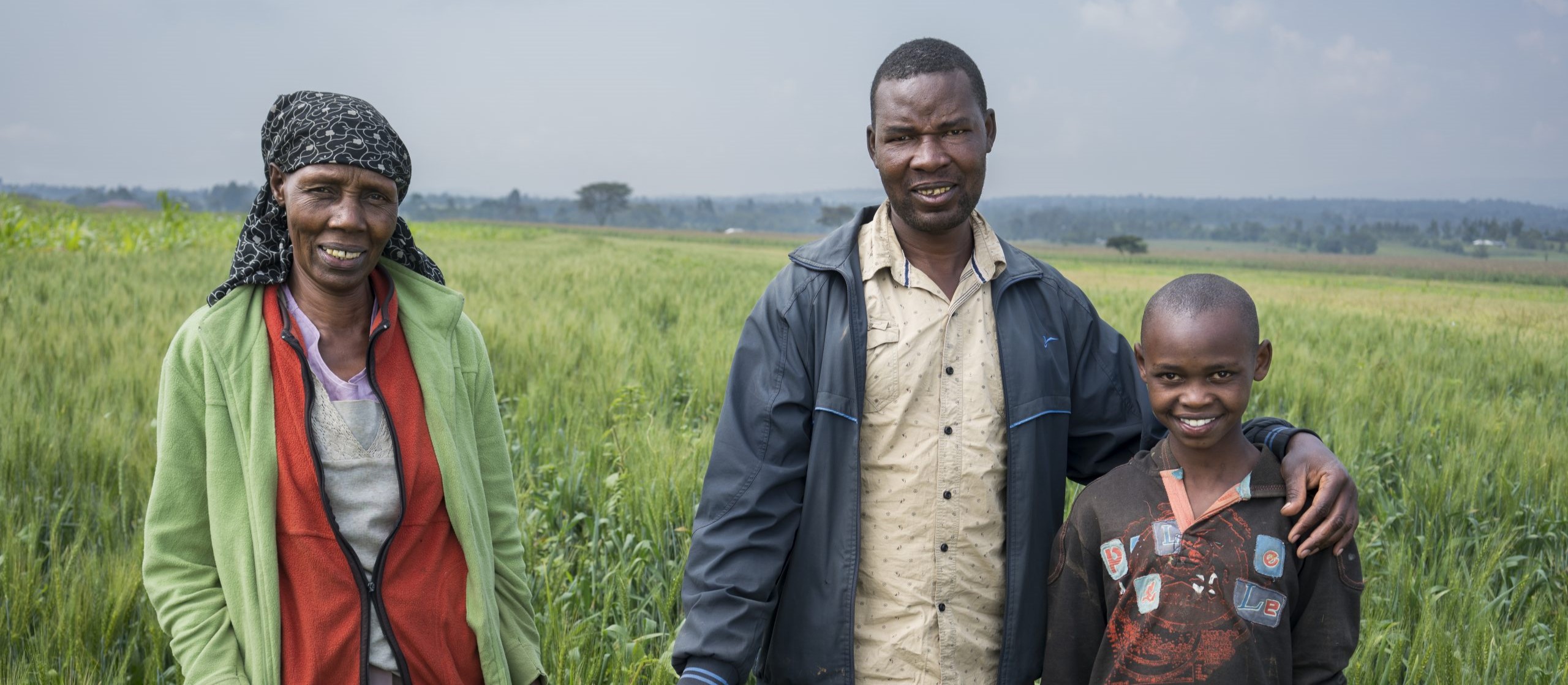Maria Itria Ibba, a scientist at CIMMYT, received the inaugural Heroes Award from the Foundation for Innovation in Healthy Food. She received the award on October 29 at the ASA-CSSA-SSSA International Annual Meeting in St. Louis, Missouri, U.S.
Ibba, head of CIMMYT’s Wheat Chemistry and Quality Laboratory, received the honor in recognition of her outstanding leadership in launching the foundation’s Coalition for Grain Fiber initiative.
Together with her team at CIMMYT, Ibba works on improving the processing and nutritional quality of the bread and durum wheat lines derived from the CIMMYT spring wheat breeding programs. The research they conduct combines genetics and cereal chemistry, and one of the main focuses is to improve wheat grain dietary fiber. This effort begins with the development of efficient screening methods and the identification of germplasm with unique dietary fiber profiles.
The coalition seeks to improve the nutrition in staple foods without impacting their taste, mouthfeel or consumer price. It is simultaneously dedicated to establishing profit incentives for farmers and other food suppliers that enhance public health by delivering increased nutrient foods.
According to the coalition, improvements in the nutritional content of white and whole wheat flour may ultimately save thousands of lives and billions of healthcare U.S. dollars globally.
“Most people across the world do not consume enough dietary fiber, which is essential in the fight against various diseases,” says Ibba. “Increasing the dietary fiber content of a staple crop like wheat could have a significant positive impact on the health of wheat consumers. Our goal is to increase dietary fiber intake through the consumption of wheat products with greater fiber content.”

Plant breeders, food scientists, nutrition/health scientists and economists are partnering with the coalition to transform the food industry. They support non-GMO (not genetically modified organisms) approaches to increasing naturally occurring dietary fiber in grains.
Over 50 public and private-sector laboratory leaders in three countries and 23 U.S. states have engaged with the coalition, including from CIMMYT, Rothamsted Research, University of Nebraska, Lincoln, University of California, Davis, Cornell University and Bayer Crop Science.
The Nebraska Wheat Board provided support for the efforts of the foundation and the coalition.
“I feel humbled to have received the Heroes Award,” says Ibba. “I know that this award not only represents the work I have been doing, but also all the hard work that my team and my organization have been doing for several years.”
About CIMMYT
CIMMYT is a cutting edge, non-profit, international organization dedicated to solving tomorrow’s problems today. It is entrusted with fostering improved quantity, quality, and dependability of production systems and basic cereals such as maize, wheat, triticale, sorghum, millets, and associated crops through applied agricultural science, particularly in the Global South, through building strong partnerships. This combination enhances the livelihood trajectories and resilience of millions of resource-poor farmers, while working towards a more productive, inclusive, and resilient agrifood system within planetary boundaries.
CIMMYT is a core CGIAR Research Center, a global research partnership for a food-secure future, dedicated to reducing poverty, enhancing food and nutrition security and improving natural resources. For more information, visit cimmyt.org.
About the Foundation for Innovation in Healthy Food
FIHF builds coalitions of stakeholders that support increasing the nutritional value of the foods we consume, while preserving consumers’ food experiences.
About the Coalition for Grain Fiber
The coalition is enrolling grain fiber in the fight against chronic disease. By improving the nutritional content of white and whole wheat flour, it seeks to save thousands of lives and dramatically reduce healthcare costs.

 Environmental health and biodiversity
Environmental health and biodiversity 
